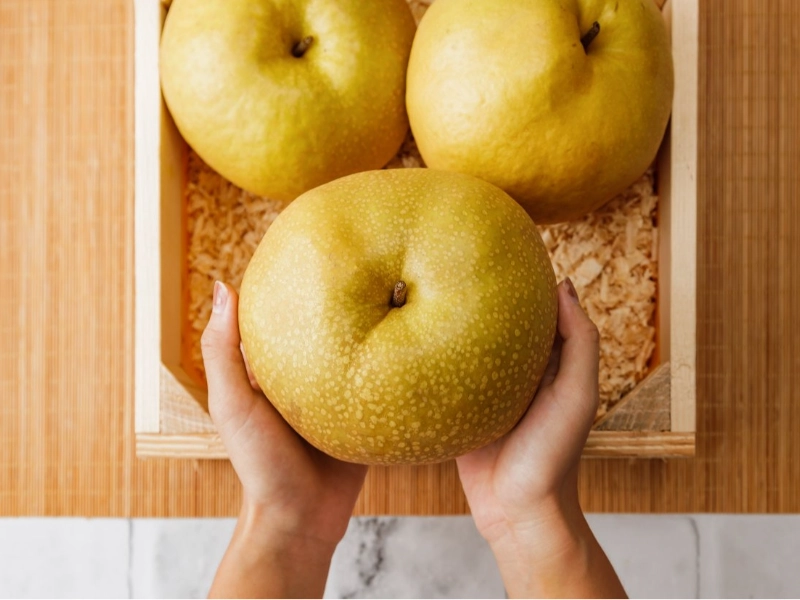The Pear Diet: Why It's the Ideal Meal Replacement Fruit
Advertisement
5. The Fiber Factor: Pears and Digestive Health

Advertisement
Pears' high fibre count is not only good for weight loss; it also greatly helps to maintain digestive health generally. Knowing the fibre content in pears will help you value why this fruit is a great choice for a meal replacement programme endorsing gut health and weight control.
One of the greatest fruit sources of dietary fibre, a medium-sized pear has roughly 6 grammes of fiber—almost a fifth of the daily advised consumption. Comprising both soluble and insoluble fibre, this fibre level offers different benefits for digestive health.
Soluble fibre slows down digestion since it dissolves in water to create a gel-like material. Those trying to lose weight especially benefit from this kind of fibre since it increases sensations of fullness and can help regulate blood sugar levels. The soluble fibre in a pear absorbs water in your digestive track to create a thick gel. This gel helps you feel full for longer by slowing down food's passage through your intestines, therefore optimising nutritional absorption.
Soluble fibre also functions as a prebiotic, feeding the helpful microorganisms in your stomach. From digestion to immune system function to even mental wellness, these helpful bacteria are absolutely vital. Better weight control, strengthened immune system, and even better mood have been connected to a healthy gut flora. Regular p Pear consumption helps your intestinal flora get the fuel they need to flourish, so affecting your general health.
Conversely, insoluble fibre provides weight to the stool and helps to avoid constipation by not dissolving in water, thereby encouraging frequent bowel motions. Maintaining a healthy digestive system and perhaps lowering the risk of some digestive diseases depend on this kind of fibre. Apart from comfort, regular bowel motions help the body to eliminate waste products and poisons.
Pears are a great choice for enhancing general digestive health because of their mix of both kinds of fibres. Regular pears intake can help avoid constipation, diverticulitis, and haemorrhoids among other digestive problems. Furthermore linked to a lower incidence of colon cancer is a diet high in fibres, thus pears are a wise long-term health decision.
Pears' fibre is found all throughout the fruit, including in the skin. Eating pears with the skin on maximises your consumption of fibres, then. The peel adds to the nutritional worth of the fruit by including a good amount of its antioxidants as well.
Although pears include a lot of fibre, if you're not used to a high-fiber diet you should progressively boost your fibre consumption. Suddenly ingesting a lot of fibre can cause stomach trouble. Start by adding one pear a day to your diet and progressively boost your consumption as your body responds.
You May Like
Advertisement

